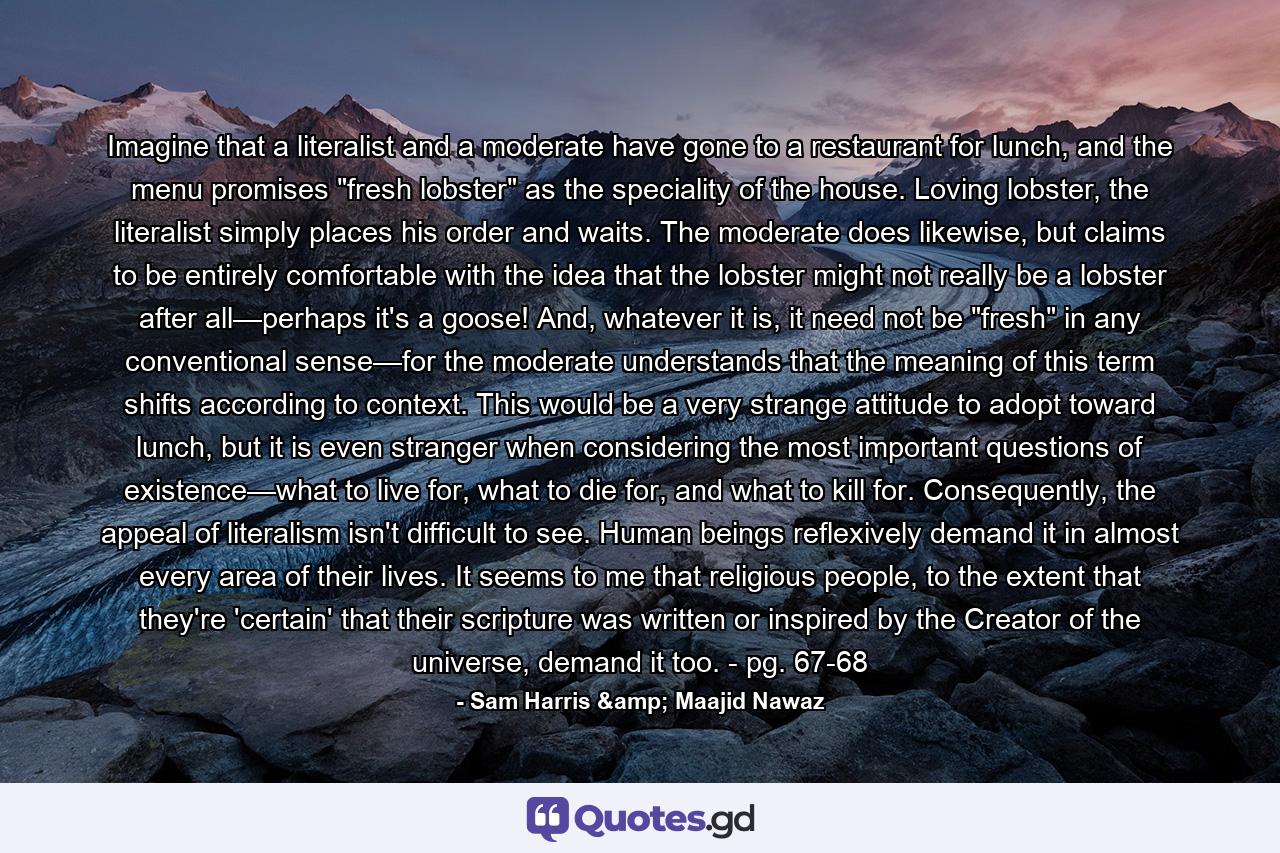Imagine that a literalist and a moderate have gone to a restaurant for lunch, and the menu promises “fresh lobster” as the speciality of the house. Loving lobster, the literalist simply places his order and waits. The moderate does likewise, but claims to be entirely comfortable with the idea that the lobster might not really be a lobster after all—perhaps it’s a goose! And, whatever it is, it need not be “fresh” in any conventional sense—for the moderate understands that the meaning of this term shifts according to context. This would be a very strange attitude to adopt toward lunch, but it is even stranger when considering the most important questions of existence—what to live for, what to die for, and what to kill for. Consequently, the appeal of literalism isn’t difficult to see. Human beings reflexively demand it in almost every area of their lives. It seems to me that religious people, to the extent that they’re ‘certain’ that their scripture was written or inspired by the Creator of the universe, demand it too. – pg. 67-68
